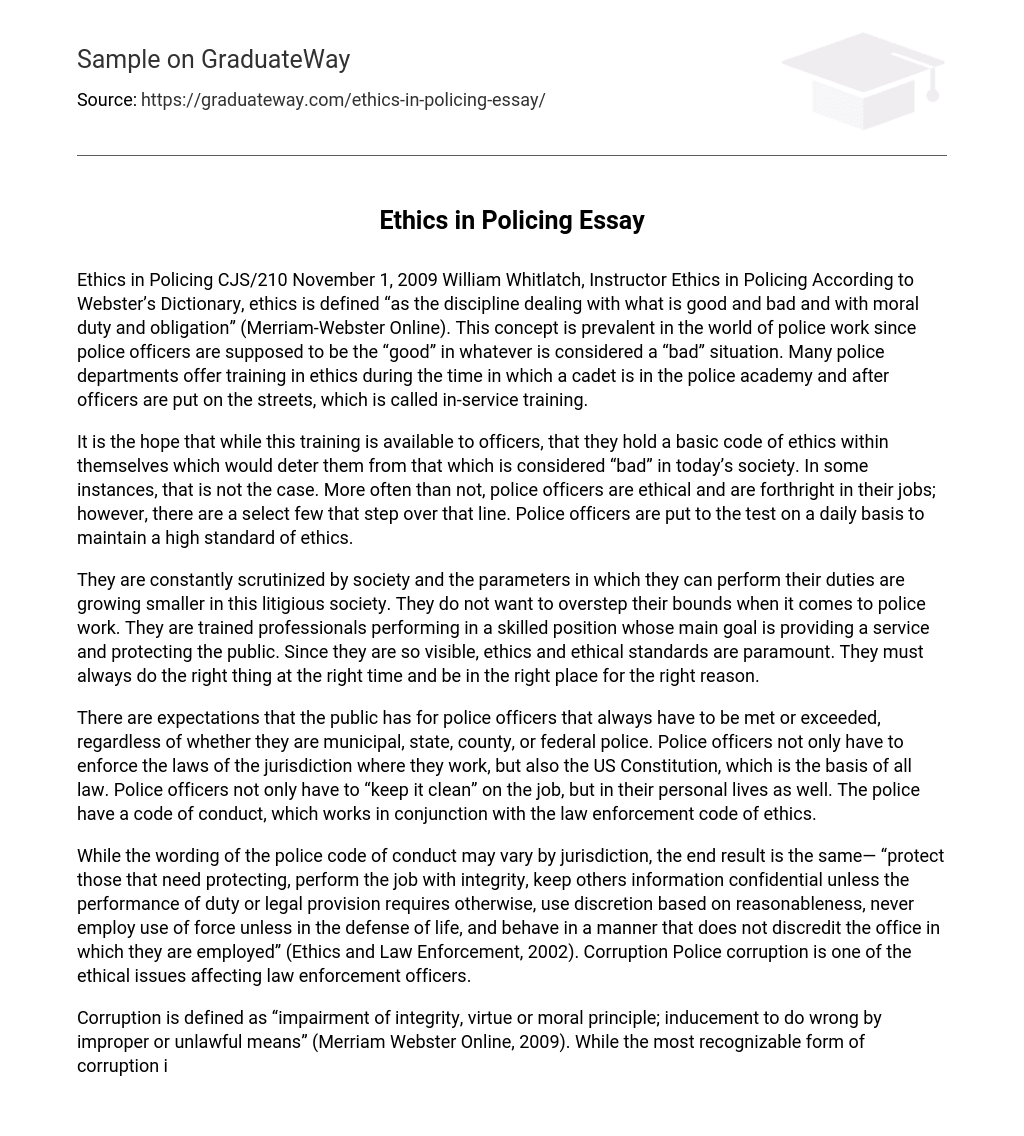The Dictionary provides a definition of ethics, which encompasses the study of good and bad, moral duty, and obligation. In the context of law enforcement, it is imperative for police officers to demonstrate goodness even in difficult circumstances. To achieve this goal, numerous police departments offer ethics training to cadets during their time at the police academy and also provide ongoing training for officers on active duty.
Although the majority of police officers are expected to adhere to a code of ethics that prevents them from engaging in “bad” behavior, there are some who fail to do so. However, most officers remain ethical and honest in their roles, while only a few cross the line. Therefore, upholding a strong ethical standard continues to be a challenge for police officers.
Due to society’s litigious nature, police officers are constantly under scrutiny and have limited freedom in their duties. They must be cautious not to surpass their authority as law enforcement professionals and prioritize providing a service and maintaining public safety. The significance of ethics and ethical standards cannot be emphasized enough in their role, as they must consistently make accurate decisions and be present at necessary locations.
All police officers, regardless of the level of government they work for (municipal, state, county, or federal), must meet certain expectations from the public. They have a range of responsibilities such as enforcing local laws and upholding the US Constitution, which forms the basis for all legislation. Moreover, police officers must also uphold a positive reputation in their professional and personal lives by following a code of conduct that aligns with the law enforcement code of ethics.
The police code of conduct may vary by jurisdiction, but its primary goal remains consistent — to safeguard individuals in need, uphold integrity, preserve the confidentiality of information unless legally necessary, exercise reasonable discretion, employ force solely for self-defense purposes, and maintain behavior that upholds their professional reputation (Ethics and Law Enforcement, 2002). Corruption poses an ethical challenge for law enforcement officers.
The concept of corruption, according to Merriam Webster Online (2009), involves the erosion of honesty, goodness, or moral values and the encouragement of improper or illegal conduct. Corruption encompasses various behaviors such as accepting bribes in exchange for favors, making false police reports, discriminating against people based on their traits, and disregarding the rights of citizens. It is widespread across all levels of law enforcement and frequently connected to incidents of police brutality.
Police misconduct is a broader category that includes police brutality, which refers to various types of behavior. Police misconduct involves any actions that violate the ethical code officers are expected to follow, such as breaking departmental policies, constitutional protections, or laws. It can occur individually or together. While police brutality specifically involves physical attacks on individuals, it also encompasses verbal assaults from law enforcement officers towards the public.
Excessive force used by officers during the apprehension of a suspect or for self-protection is considered police brutality, violating a suspect’s 5th amendment right against cruel and unusual punishment. Both police departments and citizens frown upon these behaviors and aim to reduce or eliminate unethical conduct among officers. Unfortunately, as long as there is good and bad, there will always be ethical and unethical actions.
References
- Corruption. (n. d). In Merriam-Webster Online. Retrieved from www. merriam-webster. com/dictionary
- Crime and Misconduct Commission. (2007). What is misconduct. Retrieved from www. cmc. qld. gov. au
- Ethic(s). (n. d). In Merriam-Webster Online. Retrieved from www. merriam-webster. com/dictionary
- Grant, J. Kevin. “Ethics and law enforcement. ” The FBI Law Enforcement Bulletin. 71. 12 (Dec 2002): 11(4). General OneFile. Gale. Apollo Library. 1 Nov. 2009





